
The cooperative Japanese/French quartet Kaze of pianist Satoko Fujii, trumpeter Natsuki Tamura, trumpeter Christian Pruvost and drummer Peter Orins are expanded for a second time with New York electronic artist Ikue Mori, embracing pandemic restrictions by creating this album through file exchange, adding complex layers of profound interaction to the virtual improvisations.
In Stock
Quantity in Basket: None
Log In to use our Wish List
Shipping Weight: 3.00 units
EU & UK Customers:
Discogs.com can handle your VAT payments
So please order through Discogs
Sample The Album:
Peter Orins-Drums
Ikue Mori-Electronics
Satoko Fujii-Piano
Natsuki Tamura-Trumpet
Christian Pruvost-Trumpet, Flugelhorn
Click an artist name above to see in-stock items for that artist.
Label: Circum-Libra
Catalog ID: 206
Squidco Product Code: 33088
Format: CD
Condition: New
Released: 2023
Country: Japan/France
Packaging: Cardstock gatefold foldover
Recorded in Kobe (Japan - Satoko Fujii & Natsuki Tamura), New York City (USA - Ikue Mori) and Lille (France - Christian Pruvost & Peter Orins) between October 2021 and May 2022.
"A visceral, richly textured hybrid of pre-recorded music files exchanged during pandemic and live performance.
On Crustal Movement, the pioneering musician Ikue Mori on laptop electronics joins Kaze - the cooperative quartet featuring Japanese composer-pianist Satoko Fujii and trumpeter Natsuki Tamura plus French trumpeter Christian Pruvost and drummer Peter Orins - to move in new directions as they explore innovative ways of making music. On their first album together since 2020's incendiary Sand Storm, these five sonic explorers weave together pre-recorded music files and live performance. The results are as exciting, interactive, and detailed as if they had recorded entirely live."-Circum-Libra
"Back in 2020, the French/Japanese quartet Kaze temporarily expanded to a quintet with the addition of laptop specialist Ikue Mori to the acoustic foursome of Satoko Fujii (piano), Peter Orins (drums) and trumpet players Natsuki Tamura and Christian Pruvost. Mori meshed so well for their collaboration Sand Storm (2020) that "temporary" tag can now be removed.
Crustal Movement (Libra Records) is a continuation of the quartet plus one but not a continuation of Sand Storm. This is due to the pandemic-induced isolation that limited a band where everyone contributes at least one composition. As was became a more common occurrence with collaborations over the last three years, audio files were exchanged over the internet, each member adding to the recording of a piece until it reaches a complete ensemble performance. But here's a twist: only Mori, Fujii and Tamura followed this template. They sent the audio files with their contributions to their French counterparts, who performed over the recorded pieces on a concert stage in France, completing these recordings in front of a live audience.
Even knowing the process, it's nearly inconceivable to imagine how they were able to put it together as they did. During "Masoandro Mitsoka," you'd swear Orins and a percussion-minded Fujii are reacting to each other in real time. Then as well, Tamura and Pruvost engage in their lively sparring just as they've always have, making great use of false notes to add greatly to the percussive element of the song. Mori and Fujii also cross back and forth the line between tonal and non-tonal as Kaze members never stay in sharply defined roles, a distinguishing characteristic of the band.
The electronic swirls of Mori's "Shifting Blocks" soon give way to the exotic sounds coming out of acoustic instruments, most notably, the wind storm of notes and semi notes from the horns of Tamura and Pruvost and the perceptive and selective way Orins reacts to what is going on around him. Once again, it's made even more amazing by understanding how this came together.
Tamura's "Rolle Cake" is marked by his trademark wit and sly turns, but also melodic development. The highlight comes near the middle, when the composer and Pruvost take center stage on a tête-à-tête, one trumpet seemingly closely on the heels of the other. The other three increasingly intrude on their convo, eventually sharing the focus. "No Twist" gradually rises from the murkiness, gathering momentum as the two Frenchmen absorb the recording and work themselves into it.
Orins chases Fujii's intrepid piano over "Crustal Movement," giving way sequentially to Mori's laptop and then the dynamic duo of trumpets. Melody seeps in from Fujii as drums and squiggly sounds roil about. Tamura and Pruvost return with a vengeance to bring the song to a dramatic conclusion.
Seven albums in, the Kaze concept shows no sign of going stale. Every time out they freshen that concept in ingenious ways and Crustal Movement with Ikue Mori returning is their most audacious undertaking yet."-S. Victor Aaron, Something Else Reviews
Get additional information at Something Else!
Artist Biographies
• Show Bio for Peter Orins "After classical music study, Peter Orins learns the drums, first in a rock and afro-cuban music school, then at the Conservatoire National de Région of Lille in the jazz section, where he studies with Guy Gilbert, Jean-François Canape, Gérard Marais... He graduates in 1997. In the meantime, he studies musicology at university, improvisation with Fred Van Hove, composition with Jean-Marc Chouvel and Ricardo Mandolini. Playing jazz from the middle of the 90's, he plays in the bands that will create in 2000 the Circum collective : Impression (for which he composes, became Flu(o) in 2012), Quartet Base, Stefan Orins Trio. He coordinates the Circum collective till its fusion with the CRIME in 2010, and creates the Circum Grand Orchestra, band with the 10 musicians of Circum, for which he composes also occasionally. At the same time Peter Orins get in the CRIME projects, improvised and experimental music collective also based at la malterie in Lille. He plays especially in La Pieuvre, big improvisation orchestra conducted by Olivier Benoit (nowadays Artistic Director of L'Orchestre National de Jazz). It's with the Crime that he'll develop his solo work (drums and electronic with Pure Data application), and improvised and experimental projects with David Bausseron, Laurent Rigaut, Ivann Cruz, Christian Pruvost, Jean-Luc Guionnet, Benjamin Duboc, Yanik Miossec, Falter Bramnk, ... in bands like DBPO, De Nouvelles Erreurs, Signal Box, Electropus, Ternoy/Cruz/Orins (that will become Toc, free-rock progressive band)... In 2006, he leads a french-vietnamese project called Hué/Circum with the support of Region Nord Pas de Calais, which combines 4 musicians from Circum and 3 traditional vietnamese musicians from Hué (tour in Vietnam, Japan and France, from 2006 to 2009). In 2010, he creates a french-japanese quartet with pianist Satoko Fujii and trumpet players Natsuki Tamura and Christian Pruvost, band for which he composes with Satoko Fujii. Several international tours with this band (Japan, Israel, Germany, France, USA, Canada). In 2011, Ivann Cruz, guitar player from Muzzix, and Maciej Garbowski, polish double-bass player, invite him to play in their quartet with the finnish saxophone player Kari Heinila. He also collaborates with theatre, composes for cinema or animation movies, dance... Since the creation of Muzzix in 2010, Peter Orins coordinates the artistic direction of the collective. He played with : Sophie Agnel, Jean-Luc Guionnet, Benjamin Duboc, Radu Malfati, Steve Dalachinsky, Andrew D'Angelo, Petr Cancura, Josh Sinton, Curtis Hasselbring, Joe Morris, Rene Hart, David Miller, Frank London, Nate Wooley, Renee Baker, Ernest Dawkins, Dave Rempis, Jeb Bishop, Michael Zerang, Jacques Di Donato, François Corneloup, Norbert Lucarain, Sylvain Kassap, Alain Vankenhove, Camel Zekri, ..." ^ Hide Bio for Peter Orins • Show Bio for Ikue Mori "Ikue Mori moved from her native city of Tokyo to New York in 1977. She started playing drums and soon formed the seminal NO WAVE band DNA, with fellow noise pioneers Arto Lindsay and Tim Wright. DNA enjoyed legendary cult status, while creating a new brand of radical rhythms and dissonant sounds; forever altering the face of rock music. In the mid 80's Ikue started in employ drum machines in the unlikely context of improvised music. While limited to the standard technology provided by the drum machine, she has never the less forged her own highly sensitive signature style. Through out in 90's She has subsequently collaborated with numerous improvisors throughout the US, Europe, and Asia, while continuing to produce and record her own music. 1998, She was invited to perform with Ensemble Modern as the soloist along with Zeena Parkins, and composer Fred Frith, also "One hundred Aspects of the Moon" commissioned by Roulette/Mary Flagler Cary Charitable Trust. Ikue won the Distinctive Award for Prix Ars Electronics Digital Music category in 99. In 2000 Ikue started using the laptop computer to expand on her already signature sound, thus broadening her scope of musical expression. 2000 commissioned by the KITCHEN ensemble, wrote and premired the piece "Aphorism" also awarded Civitella Ranieri Foundation Fellowship. 2003 commissioned by RELACHE Ensemble to write a piece for film In the Street and premired in Philadelphia. Started working with visual played by the music since 2004. In 2005 Awarded Alphert/Ucross Residency. Ikue received a grant from the Foundation for Contemporary Arts in 2006. In 2007 the Tate Modern commissioned Ikue to create a live sound track for screenings of Maya Deren's silent films. In 2008 Ikue celebrated her 30th year in NY and performed at the Japan Society. Recent commissioners include the Montalvo Arts Center and SWR German radio program and Shajah Art foundation in UAE. Current working groups include MEPHISTA with Sylvie Courvoisier and Susie Ibarra, PHANTOM ORCHARD with Zeena Parkins, project with Koichi Makigami and various ensembles of John Zorn. New duo Twindrums project with YoshimiO workshop/lecture in various schools include University of Gothenburg, Dartmouth Collage, New England Conservatory, Mills Collage, Stanford University, The School of the Art Institute of Chicago" ^ Hide Bio for Ikue Mori • Show Bio for Satoko Fujii "Born on October 9, 1958 in Tokyo, Japan, Fujii began playing piano at four and received classical training until twenty, when she turned to jazz. From 1985-87, she studied at Boston's Berklee College of Music, where her teachers included Herb Pomeroy and Bill Pierce. She returned to Japan for six years before returning to the US to study at the New England Conservatory in Boston, where her teachers included George Russell, Cecil McBee, and Paul Bley, who appeared on her debut CD Something About Water (Libra, 1996). Since then Fujii has been an innovative bandleader and soloist, a tireless seeker of new sounds, and a prolific recording artist in ensembles ranging from duos to big bands. She has showcased her astonishing range and ability approximately 80 CDs as leader or co-leader. With each new recording or new band, she explores new aspects of her art. Regular collaborations include her New York trio with bassist Mark Dresser and drummer Jim Black, augmented by trumpeter/husband Natsuki Tamura to form the Satoki Fujii Four; her duo with Tamura; the Satoko Fujii Quartet featuring Tatsuya Yoshida of the Japanese avant-rock duo, The Ruins; Orchestra New York, which boasts the cream of New York's contemporary avant garde improvisers, including saxophonists Ellery Eskelin and Tony Malaby, trumpeters Herb Roberton and Steven Bernstein, and trombonist Curtis Hasselbring, among others; Orchestra Tokyo, drawing on that city's best improvisers; Orchestra Nagoya; Orchestra Kobe; the co-operative trio Junk Box with Tamura and percussionist John Hollenbeck; ma-do, a quartet including Tamura on trumpet, bassist Norikatsu Koreyasu, and Akira Horikoshi; the Min-Yoh Ensemble with Tamura, trombonist Hasselbring, and accordionist Andrea Parkins; the Satoko Fujii New Trio, featuring bassist Todd Nicholson and drummer Takashi Itani― plus countless engagements and collaborations with some of the world's most important improvisers." ^ Hide Bio for Satoko Fujii • Show Bio for Natsuki Tamura "Japanese trumpeter and composer Natsuki Tamura is internationally recognized for a unique musical vocabulary that blends extended techniques with jazz lyricism. This unpredictable virtuoso's seemingly limitless creativity led François Couture in All Music Guide to declare that "... we can officially say there are two Natsuki Tamuras: The one playing angular jazz-rock or ferocious free improv... and the one writing simple melodies of stunning beauty... How the two of them live in the same body and breathe through the same trumpet might remain a mystery." Born on July 26, 1951, in Otsu, Shiga, Japan, Tamura first picked up the trumpet while performing in his junior high brass band. He began his professional music career after he graduated from high school, playing in numerous bands including the World Sharps Orchestra, Consolation, Skyliners Orchestra, New Herd Orchestra, Music Magic Orchestra, and the Satoko Fujii Ensemble, as well as in his own ensemble. He was the trumpeter for numerous national television shows in Japan from 1973-1982, including The Best Ten, Music Fair, Kirameku Rhythm and many others. In 1986, he came to the United States to study at Berklee College of Music. He then returned to his native Japan to perform and teach at the Yamaha Popular Music School and at private trumpet studios in Tokyo and Saitama, before coming back to the US to study at New England Conservatory. He made his debut recording as a leader in 1992 on Tobifudo. In 1997 he released the duo album How Many? with pianist Satoko Fujii, who is also his wife. It marked the beginning of an artistic collaboration that continues up to the present. The duo has made a total of five CDs over the years, including 2012's Muku. "Muku contains some truly stunning, spine-tingling music...its sheer beauty and elegance is what lingers most," wrote Dave Wayne in All About Jazz. "Fujii's orchestral technique, clear chromatic lines and "prepared piano" devices contrast effectively with Tamura's arsenal of extended techniques which he executes with a warm, vocalized tone throughout the trumpet's full range," Ted Panken said in his four-star DownBeat review. Tamura's collaborations with Fujii reveal an intense musical empathy, and have garnered wide popular and critical acclaim. Jim Santella in All About Jazz described their synergy well in his glowing review of the couple's 2006 Not Two disc, In Krakow, In November: "... the creative couple forcefully demonstrates what can happen when you let your musical ideas run free... Similarly, Tamura's mournful trumpet can fly high or low in search of his next surprise. Oftentimes, they both issue plaintive moans that sing like angels on high." Their sixth duet album is due out in 2017. In 1998, Tamura began recording his unaccompanied solo performances. The stunning solo trumpet debut release, A Song for Jyaki earned a Writers Choice 1998 in Coda magazine, and Andy Bartlett wrote in Coda, "A fabulous set of hiccuping leaps, drones and post-bop trumpet hi-jinx. Tamura goes from growling lows to fluid, free solo runs and echoes not only Don Cherry's slurring anti-virtuosic chops but also Kenny Wheeler's piercing highwire fullness." He followed it up in 2003 with KoKoKoKe, which Jon Davis described in Exposé as "Buddhist chants from an alien planet." Grego Applegate Edwards explains that on Tamura's most recent solo album, 2013's Dragon Nat, "he pares down to focus on simple unwinding melodic material, the sound of his trumpet as a sensuous thing, a periodicity. Taken as a whole it is a kind of environmental tone poem for the moment Natsuki is in now." 2003 was a breakout year for Tamura as a bandleader, with the release of Hada Hada, featuring his free jazz-avant rock quartet with Fujii on synthesizer. Peter Marsh of the BBC had this to say about the high voltage CD: "Imagine Don Cherry woke up one morning, found he'd joined an avant goth-rock band and was booked to score an Italian horror movie. It might be an unlikely scenario, but it goes some way to describing this magnificent sprawl of a record." The quartet's 2004 Quartet release Exit was deemed "...a brilliantly executed set with a neon glow," by Dan McClenaghan in All About Jazz. In 2005, Tamura made a 180-degree turn in his music with the debut of his all acoustic Gato Libre quartet. Focusing on the intersection of European folk music and sound abstraction, the quartet featured Fujii on accordion, Kazuhiko Tsumura on guitar, and Norikatsu Koreyasu on bass. The quartet's poetic, quietly surreal performances have been praised for their "surprisingly soft and lyrical beauty that at times borders on flat-out impressionism," by Rick Anderson in CD Hotlist. Dan McClenaghan in All About Jazz described their fourth CD, Shiro, as "intimate, something true to the simple beauty of the folk tradition...Tamura's career has largely been about dissolving musical boundaries. With Gato Libre and Shiro, the trumpeter extends his reach even deeper into the prettiest, most accessible of his endeavors." After the unexpected passing of Norikatsu in 2012, Tamura added trombonist Yasuko Kaneko to the group. The new configuration has toured Europe and Japan and released its debut recording, DuDu, in 2014. "DuDu follows the winning formula of its predecessors but, as with the other discs, eschews the formulaic. The result is another sublimely satisfying, elegant record that brims with raw excitement and a reflective nostalgia," writes Hrayr Attarian in All About Jazz. With the tragic death of guitarist Kazuhiko Tsumura, Gato Libre is now a trio. They will release a CD and LP in 2017. In 2010, Tamura debuted a new electric quartet, First Meeting, featuring Fujii, drummer Tatsuhisa Yamamoto and electric guitarist Kelly Churko. Their first release, Cut the Rope, is "is a noisy, free, impatient album, and ranks among Fujii and Tamura's most accomplished," according to Steve Greenlee in the Boston Globe. While fronting groups and recording as a leader, Tamura has also played an integral role in nearly all of Satoko Fujii's many projects. He is featured on all of the CDs by Satoko Fujii's various orchestras (NY, Tokyo, Nagoya, Kobe, and Berlin) and has contributed original compositions and arrangements to each of their 19 critically celebrated albums. In addition, he was a featured soloist in the Satoko Fujii Quartet, her avant-rock free jazz group that also included Tatsuya Yoshida of The Ruins. Of his work on the quartet's 2003 release Minerva, Mark Keresman wrote in JazzReview.com, "Natsuki Tamura's trumpet has some of the stark, melancholy lyricism of Miles, the bristling rage of late 60s Freddie Hubbard and a dollop of the extended techniques of Wadada Leo Smith and Lester Bowie." Tamura is a vital member of Fujii's Min-Yo Ensemble as well. "Tamura tempers his avant-garde antics with an innate lyricism," wrote Steve Smith of Time Out New York in his review of Fujin Raijin, the intimate acoustic quartet's debut CD. He's also been singled out for his contributions to Fujii's ma do ensemble. "With Tamura's brash and glowing lines, the band incorporates mesmeric ostinatos and thrusting opuses into the grand schema," Glenn Astarita wrote in Ejazznews about their first CD, Desert Ship. Collaborative groups also play an important role in Tamura's career. Most recently, Tamura joined Fujii and two French musicians, trumpeter Christian Pruvost and drummer Peter Orins, to form Kaze, which made their recording debut in 2011. In 2015, they released their third album, Uminari, which Jazz Magazine (France) called, "a compelling example of free jazz today. Compositions are perfectly scripted, with a well-oiled interaction and playing of beautiful power..." The collaborative trio Junk Box, which he co-founded in 2006 along with pianist Fujii and drummer John Hollenbeck, plays Fujii's "composed improvisations," graphic scores that take "ensemble dynamics to great creative heights," says Kevin Le Gendre in Jazzwise. Their music "is full of bluster and agitation that nonetheless retains moments of great melodic beauty, usually by way of concise, pertly pretty motifs that trumpeter Tamura plays in between bursts of withering roars that often dissolve into austere overtones." Their premiere CD, Fragment, appeared in 2006. As Daniel Spicer wrote of Fragment in JazzWise, "Tamura spits out gloriously rude Lester-Bowie-like snorts, lows like a herd of robotic cattle or makes like a wheezy howler monkey... Cool and clever." Glenn Astarita of All About Jazz declared it "Required listening." Along the way, there have been one-off cooperative groups and sideman appearances for Tamura as well. In the Tank, an ad hoc quartet with Fujii and electric guitarists Takayuki Kato and Elliott Sharp, is a "triumphant electro-acoustic adventure" according to Daniel Spicer of Jazzwise. "Think AMM meets blues guitar meets 1970s Miles Davis and you get some idea of the disc's flavor: a slow-moving panorama for the ears, where sounds are systematically added, repeated, refined, and replaced in turn," wrote Nate Dorward in Cadence. Tamura and Fujii were one of two piano/trumpet duos featured on the Double Duo Crossword Puzzle CD, a live recording with Dutch trumpeter Angelo Verploegen and pianist Misha Mengelberg. Tamura has also toured and recorded with saxophonist Larry Ochs' Sax and Drumming Core, and appeared on albums by drummer Jimmy Weinstein, saxophonist Raymond McDonald, and CDs by Japanese free-jazz pioneers trumpeter Itaru Oki and pianist Masahiko Sato. In 2014 he released Nax, a duet album with bassist Alexander Frangenheim. Tamua has toured throughout Japan, North America, and Europe, appearing at major jazz festivals, concert halls, and clubs." ^ Hide Bio for Natsuki Tamura • Show Bio for Christian Pruvost ^ Hide Bio for Christian Pruvost
7/7/2025
Have a better biography or biography source? Please Contact Us so that we can update this biography.
7/7/2025
Have a better biography or biography source? Please Contact Us so that we can update this biography.
7/7/2025
Have a better biography or biography source? Please Contact Us so that we can update this biography.
7/7/2025
Have a better biography or biography source? Please Contact Us so that we can update this biography.
7/7/2025
Have a better biography or biography source? Please Contact Us so that we can update this biography.
Track Listing:
1. Masoandro Mitsoka 11:58
2. Motion Dynamics 4:51
3. Rolle Cake 7:38
4. Shifting Blocks 5:25
5. No Twist 10:59
6. Crustal Movement 10:21
Improvised Music
Free Improvisation
Electro-Acoustic
Electroacoustic Composition
Asian Improvisation & Jazz
European Improvisation, Composition and Experimental Forms
Quintet Recordings
Satoko Fujii & Natsuki Tamura's Libra Label
Staff Picks & Recommended Items
New in Improvised Music
Search for other titles on the label:
Circum-Libra.



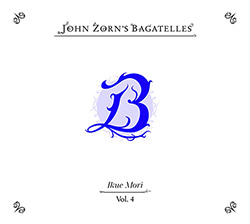


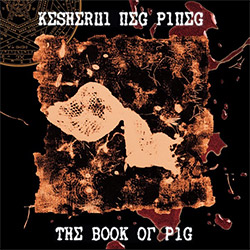

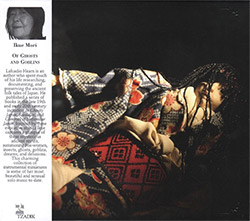



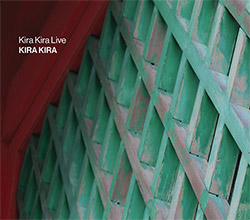


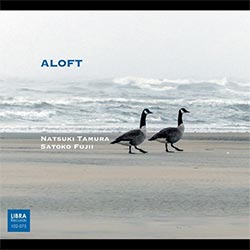

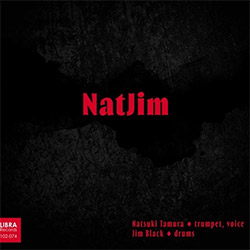


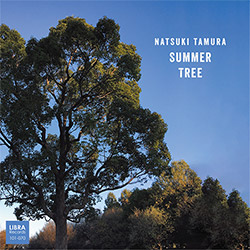


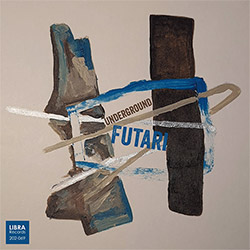


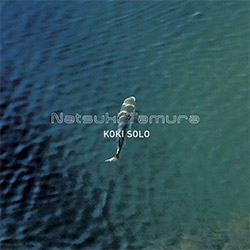






![+DOG+: The Light Of Our Lives [2 CDs]](https://www.teuthida.com/productImages/misc4/36009.jpg)


![Parker, Evan / Jean-Marc Foussat: Insolence [VINYL]](https://www.teuthida.com/productImages/misc4/36398.jpg)










![Deupree, Jerome / Sylvie Courvoisier / Lester St. Louis / Joe Morris: Canyon [2 CDs]](https://www.teuthida.com/productImages/misc4/36404.jpg)


![Eternities: Rides Again [CASSETTE]](https://www.teuthida.com/productImages/misc4/36247.jpg)

![Lopez, Francisco: Untitled (2021-2022) [2 CDs]](https://www.teuthida.com/productImages/misc4/36438.jpg)




![Eventless Plot | Haarvol: The Subliminal Paths [CASSETTE + DOWNLOAD]](https://www.teuthida.com/productImages/misc4/36232.jpg)







![Eventless Plot | Francesco Covarino: Methexis [CASSETTE + DOWNLOAD]](https://www.teuthida.com/productImages/misc4/36231.jpg)



![Das B (Mazen Kerbaj / Mike Majkowski / Magda Mayas / Tony Buck): Love [VINYL]](https://www.teuthida.com/productImages/misc4/36329.jpg)



![Hemphill Stringtet, The: Plays the Music of Julius Hemphill [VINYL]](https://www.teuthida.com/productImages/misc4/36409.jpg)









![Money : Money 2 [2 CDs]](https://www.teuthida.com/productImages/misc4/35894.jpg)




![Klinga, Erik: Elusive Shimmer [VINYL]](https://www.teuthida.com/productImages/misc4/36258.jpg)
![CHANGES TO blind (Phil Zampino): Volume 9 - I Wave on a Fine Vile Mist [CD + DOWNLOAD]](https://www.teuthida.com/productImages/misc4/36061.jpg)

![Wallmart / Rubbish: Asset Protection [split CD]](https://www.teuthida.com/productImages/misc4/35900.jpg)


![+Dog+: The Family Music Book Vol. 5 [2 CDs]](https://www.teuthida.com/productImages/misc4/35897.jpg)
![Kuvveti, Deli : Kuslar Soyledi [CASSETTE w/ DOWNLOAD]](https://www.teuthida.com/productImages/misc4/36107.jpg)

![Nakayama, Tetsuya: Edo Wan [CASSETTE w/ DOWNLOAD]](https://www.teuthida.com/productImages/misc4/36105.jpg)

![Brown, Dan / Dan Reynolds: Live At The Grange Hall [unauthorized][CASSETTE]](https://www.teuthida.com/productImages/misc4/36245.jpg)








![Palestine, Charlemagne / Seppe Gebruers: Beyondddddd The Notessssss [VINYL]](https://www.teuthida.com/productImages/misc4/36206.jpg)
![Palestine, Charlemagne / Seppe Gebruers: Beyondddddd The Notessssss [NEON GREEN VINYL]](https://www.teuthida.com/productImages/misc4/36207.jpg)

![Laubrock, Ingrid: Purposing The Air [2 CDs]](https://www.teuthida.com/productImages/misc4/35639.jpg)

![Yoko, Ono / The Great Learning Orchestra: Selected Recordings From Grapefruit [2 CDs]](https://www.teuthida.com/productImages/misc4/35841.jpg)









![Zorn, John / JACK Quartet: The Complete String Quartets [2 CDs]](https://www.teuthida.com/productImages/misc4/35609.jpg)
![Lonsdale, Eden: Dawnings [2 CDs]](https://www.teuthida.com/productImages/misc4/35480.jpg)



![Sorry For Laughing (G. Whitlow / M. Bates / Dave-Id / E. Ka-Spel): Rain Flowers [2 CDS]](https://www.teuthida.com/productImages/misc4/35985.jpg)

![Rolando, Tommaso / Andy Moor : Biscotti [CASSETTE w/ DOWNLOADS]](https://www.teuthida.com/productImages/misc4/36106.jpg)


![Electric Bird Noise / Derek Roddy: 8-10-22 [CD EP]](https://www.teuthida.com/productImages/misc4/35970.jpg)







![Elephant9 : Mythical River [VINYL]](https://www.teuthida.com/productImages/misc4/34624.jpg)


![Elephant9 with Terje Rypdal: Catching Fire [VINYL 2 LPs]](https://www.teuthida.com/productImages/misc4/35355.jpg)
![Deerlady (Obomsawin, Mali / Magdalena Abrego): Greatest Hits [VINYL]](https://www.teuthida.com/productImages/misc4/34876.jpg)







![Surplus 1980: Illusion of Consistency [CD]](https://www.teuthida.com/productImages/misc4/35069.jpg)
![Staiano, Moe: Away Towards the Light [VINYL + DOWNLOAD]](https://www.teuthida.com/productImages/misc4/35037.jpg)
![Coley, Byron: Dating Tips for Touring Bands [VINYL]](https://www.teuthida.com/productImages/misc4/17906.jpg)

![Lost Kisses: My Life is Sad & Funny [DVD]](https://www.teuthida.com/productImages/misc4/lostKissesDVD.jpg)